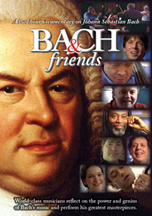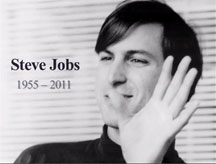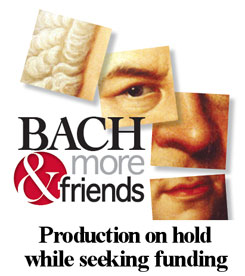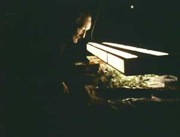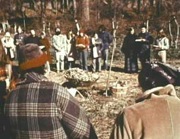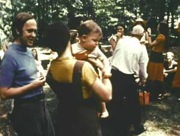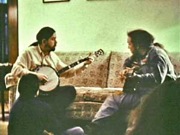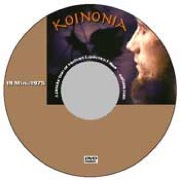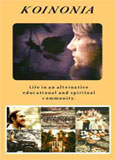Koinonia

A DOCUMENTARY PORTRAIT
This sometimes-community, sometimes-educational institution
has always been focused on spiritual and personal development.
for short periods of time to explore personal development,
spiritual disciplines, and community living.

the changing of the seasons in a community close to nature,
touching on celebration and a sense of transcendence.

community members are seen farming in their organic garden,
sharing meals, participating in spiritual and holistic disciplines,
and conducting educational workshops and seminars.
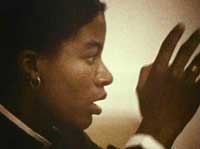
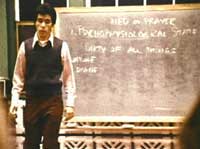
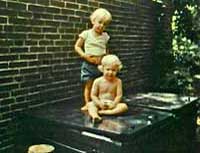

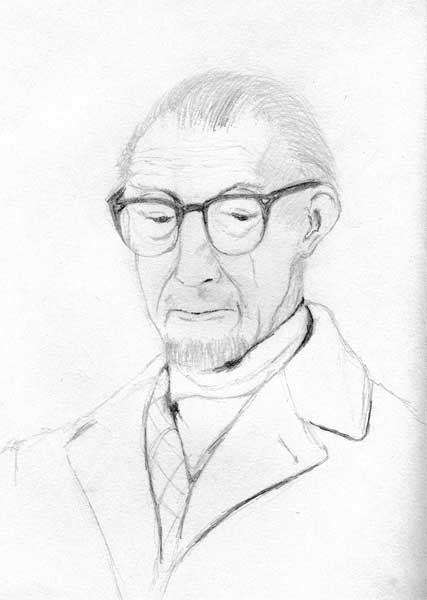


composer and filmmaker, documents the group search
for meaning in life through daily work, meditation,
the arts, and group interaction.
![]()

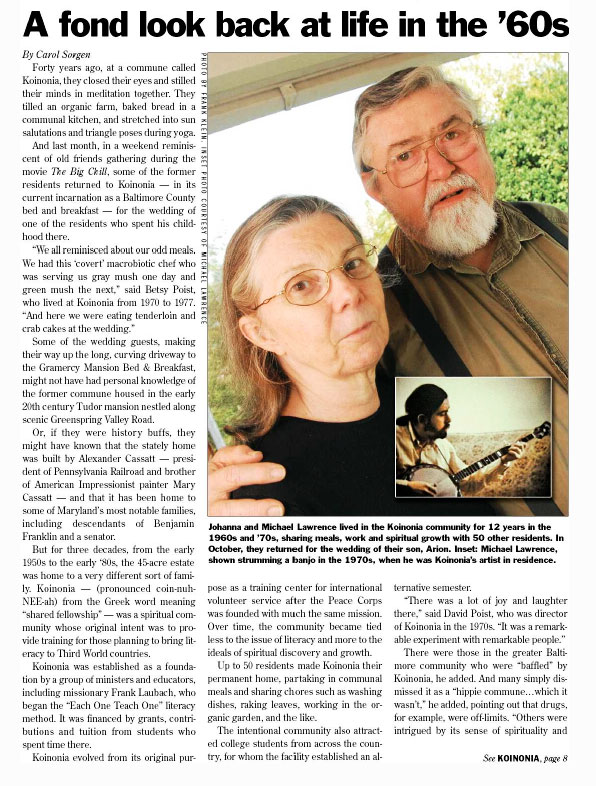
Koinonia
From page 1
came from all over to visit and attend per formances and programs.”
You can’t go home again
Before the Poists joined the community, David had been working in Baltimore for the Ecumenical Campus Ministry, which served area colleges. He saw in Koinonia a place “to further the development of the spiritual revolution that was taking place in America at the time.”
Now 67, Poist is retired from his position as rector of St. Paul’s Memorial Episcopal Church in Charlottesville, Va., but came back to Koinonia to officiate at the wedding. Returning to the place after all these years was, not surprisingly, a bit surreal. He and his wife Betsy stayed at the bed and breakfast in the room that had once belonged to Koinonia’s organic farmer.
“It was like stepping backward in time, the bones of the place looking so much the same, but it being so much fancier than when we lived there,” said Betsy Poist.
For former resident Michael Lawrence, who spent 12 years at Koinonia and whose son Arion got married there in October, “The wedding was the first time we saw it up close in years,” he said.
“It really was a magical place, and you can still see some of that. But things change and time passes.”
Lawrence first heard about Koinonia when he was completing his studies in classical guitar at the Peabody Conservatory and took a course given by David Poist.
Poist invited Lawrence for a visit, and not long thereafter, Lawrence and his wife, Johanna, came to live at Koinonia. Michael was the community’s artist-in-residence, and Johanna eventually became secretary and then interim director.
“The idea of community was — and is — very attractive,” Johanna recalled.
“We had been looking at alternative ways of living,” Lawrence added, “and were especially interested in a more rural way of life than what we were living in downtown Baltimore.”
For Johanna, who is now 59 and works in the performing arts office at CCBC Essex, Koinonia was the college education she never had.
For Michael, it was an opportunity to meet “an interesting mixture of creative, intelligent people who were all looking for alternatives.” It also may have helped shape his career. He made a short film about Koinonia in 1975, and today is a Baltimore documentary filmmaker.
Spiritual seekers - David Poist said Koinonia exposed those who lived there to the virtues of communal living — such as “sharing tasks with some one who is good at what you’re not, and realizing you’re part of a bigger picture.”
“It was a remarkable community of people of all ages and backgrounds, from ‘Jesus’ people to Zen Buddhists, from activists to lifelong Quakers.”
But sometimes his job as director wasn’t easy. “Balancing budgets with philosophy, individual programs with community experiences, and of course, egos, could all be a challenge,” he added.
Betsy Poist recalled creating an ever changing list of the 10 most eccentric characters at Koinonia.
“We figured a whole lot of people would have been insulted they didn’t make the list,” she quipped. “These were some of the most enlightened people you would ever know, but also some of the most unique.”
That’s what Jeff Haviland found during his stay at Koinonia from 1969 to 1972. Haviland, now 59 and a high school guidance counselor, was a student at Adelphi University in Long Island, N.Y. “and not very excited about it.”
Haviland took a break to travel to India, where he worked with Mother Theresa. That experience taught Haviland, who was raised in the affluent town of Stamford, Ct., that “it was time to grow up and take a more responsible role in the world.”
When he returned, a professor told him about Koinonia, so he came for a visit, which lasted the better part of three years. “It was the rootless ‘60s,” Haviland remembers, “and I didn’t have a lot of things I believed in.”
Haviland, whose grandfather had been a farmer, began working with Koinonia’s or ganic farmer Dick Falkenstein. (The Koinonia Organic Farm, the oldest organic farm in Maryland, is still run at Gramercy and provides fresh herbs to local super markets and grocers.) Each morning started with a meditation, and throughout the day, Falkenstein imparted both spiritual and farming wisdom to Haviland.
“Dick was in his 70s then, but we be came good friends,” said Haviland. “There’s not a month that goes by that I don’t pass along something he said to me to the kids I work with.”
Haviland still cherishes the memories of the “constant flow” of people from all over the world who passed through Koinonia, either as visitors, teachers or residents. “It was a time to grow, explore and embrace your spirituality,” he said.
After three years, Haviland and his girl friend (now his wife) Linda decided it was time to leave. “Dick’s maxim was that we should all be pilgrims and ‘get our hands dirty’ in the world,” said Haviland.
Formany years, the Havilands came back to Koinonia for the annual Thanksgiving festival, and Haviland served on the board of directors until the community closed after losing its funding in 1985. He regrets that many of the former residents haven’t stayed in closer touch with each other.
He came back to Koinonia for Arion Lawrence’s wedding with this question: “How do you revisit your past and have it live up to what it was?” adding, “What’s most important is what you took away from the place. It became part of my story.”
Like the Lawrences and the Poists, Haviland has nothing but fond memories of his experience at Koinonia. “It was a unique opportunity for people to explore their spiritual side in a safe place,” he said. “I wish I had some place like that to send kids to now.
“There was a grace about [Koinonia],” said Haviland. “It was a place where you could go slowly, to find — as the Quakers say — that ‘still, small voice within.’ I’m still hoping to have that experience again.” To see the trailer for Lawrence’s documentary about Koinonia, go to www.youtube.com/watch?v=-wksF7V6SKw.
; Additional reporting by Barbara Ruben.
Powered by QContent
Copyright (c)2008 The Beacon ~Baltimore~ Nov 2008

